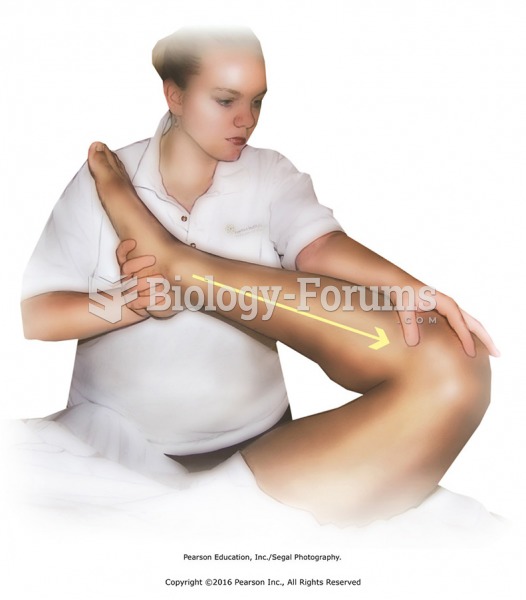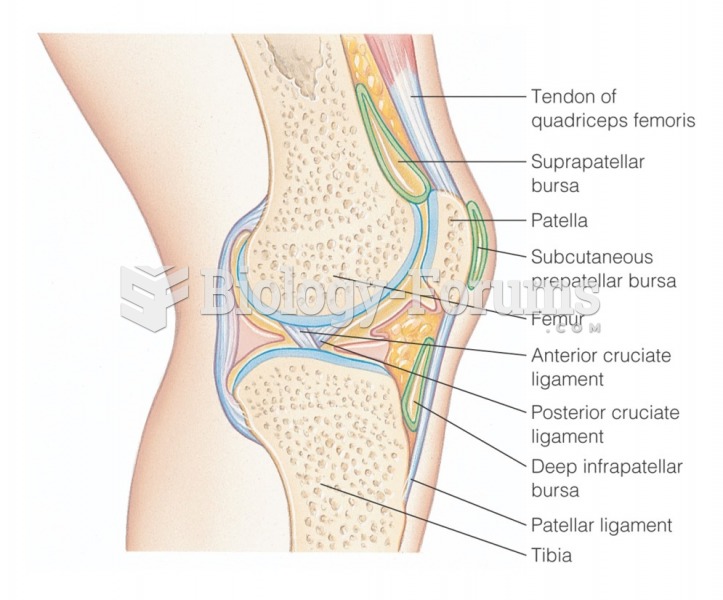|
|
|
Did you know?
Human kidneys will clean about 1 million gallons of blood in an average lifetime.
Did you know?
There are more bacteria in your mouth than there are people in the world.
Did you know?
The horizontal fraction bar was introduced by the Arabs.
Did you know?
When Gabriel Fahrenheit invented the first mercury thermometer, he called "zero degrees" the lowest temperature he was able to attain with a mixture of ice and salt. For the upper point of his scale, he used 96°, which he measured as normal human body temperature (we know it to be 98.6° today because of more accurate thermometers).
Did you know?
The term pharmacology is derived from the Greek words pharmakon("claim, medicine, poison, or remedy") and logos ("study").
 In the communication technique of collaborating, the nurse sends the message that the nurse and pati
In the communication technique of collaborating, the nurse sends the message that the nurse and pati
 Stretch the hip in flexion. With one hand just above the knee and the other hand on the foot, gently ...
Stretch the hip in flexion. With one hand just above the knee and the other hand on the foot, gently ...





